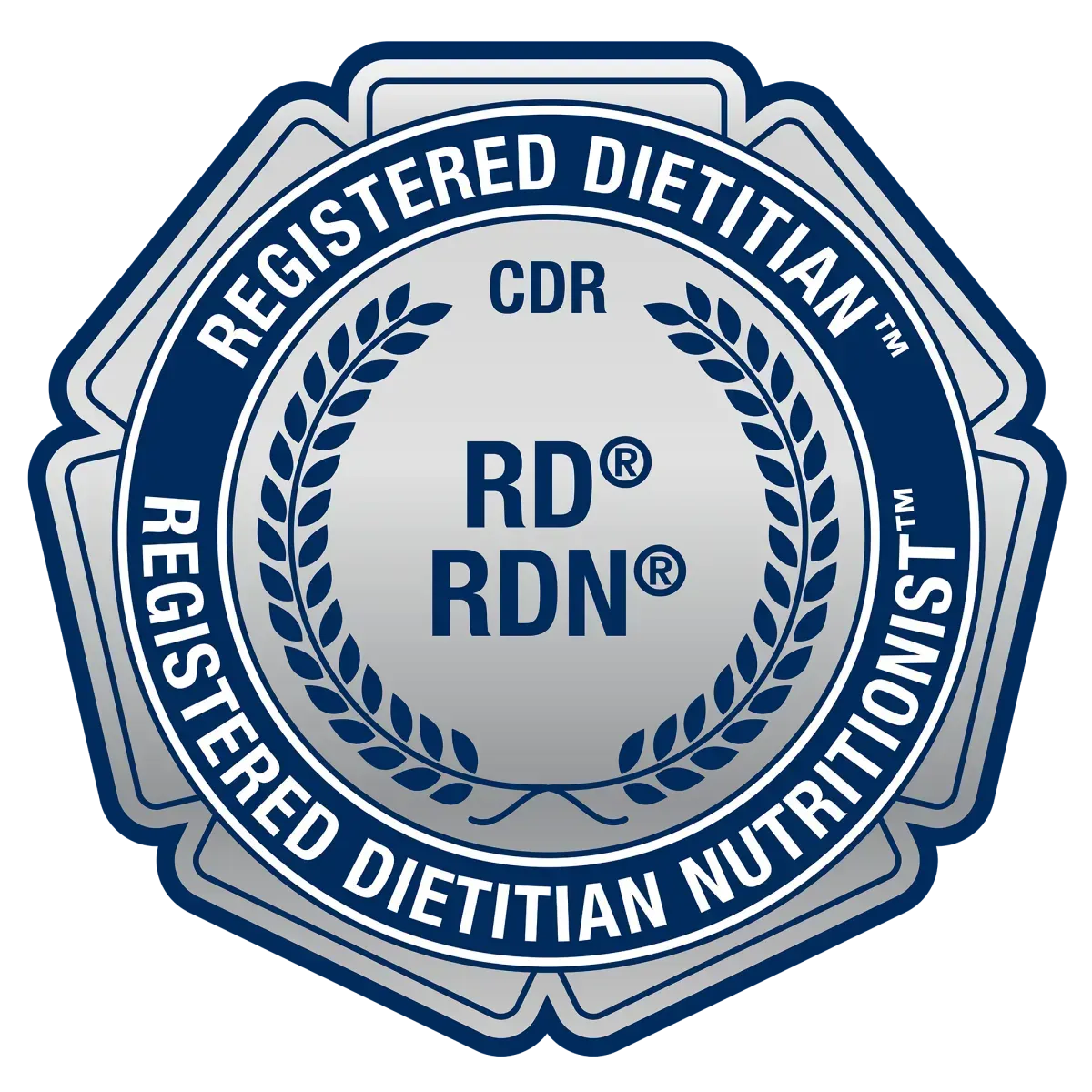Current Insurance Providers Accepted:
Coverage based on personal insurance plans.



Clinical Nutrition for Complex Cases:
Gut, Hormones, and Mind
Did you know your gut is the largest immune organ in your body?
Yup! Everything starts in the gut. However, popping a probiotic won't be enough, friend. So sorry to bust your bubble but there are many factors that affect our health and poor lifestyle habits means even with loads of supplements, you won't improve at the cellular level. To begin, it's not just what you eat that matters; it's ingestion, then digestion, then absorption and when one is off, everything in the body is affected.
For example, did you know that magnesium plays a role in over 300 conversions in the body? But just taking a pill doesn't mean it will be absorbed. We must look at many other factors that block, neutralize or stimulate absorption and return the body to balance (homeostasis).
My approach is to help you forever!
Yep- that means that instead of throwing a band-aid on what is happening (you know, get a pill for that problem!), I like to look at WHY it is happening in the first place and help you find the root cause.
Once we uncover and fix the root issue, you won't have to resort to medications, energy drinks or injections!
Your lifestyle, environment, diet, and stress levels (think more than just what you may "feel" but what may actually put the body into "fight or flight" mode) all play a powerful role in shaping your gut health.
When things fall out of balance—a condition called
dysbiosis—you might experience more than just the occasional gas or bloating. Even mild nutrient deficiencies from a highly processed, sugar-laden, calorie-dense diet can weaken your intestinal lining. That lining is your first line of defense against bacteria, viruses, parasites, mold, heavy metals, and yeast that can otherwise “leak” into your bloodstream and trigger systemic inflammation. And it starts in the mouth and goes all the way to the anus.
I look at it all!
Because many people assume they only need a dietitian when they want to lose or gain weight. But the truth is, uncovering hidden micronutrient deficiencies and restoring gut balance can support your entire endocrine system—including your thyroid, adrenals, and pituitary gland.
How I Help:
I work with both men and women who are struggling with Fatigue, stubborn Weight Gain, low Testosterone, Estrogen Dominance (aka, hormonal imbalance or disruptions), Elevated Lipids (think triglycerides, LDLs or low HDL), Blood Sugar Intolerances (including prediabetes and Type 2 diabetes), Thyroid issues, Pituitary, Liver, Kidney, Disordered Eating patterns (Anorexia Nervosa, Bulimia, Orthorexia), Mood Disorders (Depression, Anxiety) and Cellular Danger Response that can cause auto immune disease and damage to your HPATGG axis (Hypothalamus, Pituitary, Adrenal, Thyroid, Gut & Gonadal).
If you just felt unheard after your doctor has said
"you just need to eat better & exercise more"
because of your weight gain & high lipids...
... then you are in the right place!
You may have been told that your thyroid is "fine" and your numbers are within normal range.
But, did they check your fT4, rT3, fT3, TPO and TgA antibodies?
Did your doctor talk to you about how the thyroid will only show up out of range AFTER it has had 90% damage to the organ? It's how our medical world works- if there is no pill to fix your ailment then insurance won't pay for it and Dr's don't get paid to investigate further.
You know your body and when you 100%!
That’s where functional nutrition steps in.
Using advanced diagnostic tools like the
GI-MAP, Cortisol Awakening Response (CAR), DUTCH hormone test, NutrEval, Nutrigenomics and Organic Acids Test (OAT), I dig deeper to uncover the root causes of your symptoms.
These tests help us pinpoint imbalances in gut health, hormones, detoxification, neurotransmitter function, and nutrient status—so we can create a personalized plan that goes far beyond calorie counting.
Together, we’ll build a sustainable strategy that nourishes your body, supports your metabolism, and helps you feel more like you again.
And the best part is - I'll likely be telling you to
EAT MORE
and won't feel hungry at all!

Medical Nutrition Therapy is authorized by licensed Registered Dietitians, not a weekend-trained trainer! With clinical experience, we evaluate your lab results, look into your cellular activity and provide real-food recommendations to address symptoms.
Together we create a lifestyle change- not a diet.
You need something that you can stick with that is manageable, safe and sustainable.
I help you find MORE foods to eat within your health parameters.
Yep, you read that correctly!
I want you to eat MORE incredibly colorful, fresh & delicious foods to help you reach your health goals.
Did you know that more women over 50 develop disordered eating than being diagnosed with
breast cancer ?
Together, we'll create an evidence-based nutrition plan that supports a positive,
healthy relationship with food without restricting the things you love!

Optimal health starts with understanding your unique biology.
I recommend targeted functional lab tests for clients who want to uncover the root
causes of their symptoms and optimize their nutrition plan for lasting results.
These advanced assessments provide deep insights into hormone balance (DUTCH test), Cortisol Awakening Response (CAR), genetic influences on metabolism (Nutrigenomics), micronutrient status and detoxification pathways (NutrEval), and gut health (GI Mapping) help us discover parasites, opportunistic/overgrowth (bad) bacteria, commensal (good) bacteria, toxins, mold, and heavy metals that the body is busy fighting, which cause "stress" to the body.
By leveraging this data, we can create a highly personalized medical nutrition strategy that enhances nutrient absorption, supports metabolic function, and maximizes energy and well-being.
Diet Clean Up
Fatigue
Weight Management
Diabetes Mellitus
Anti-Inflammatory Diet
Hormonal Imbalances
Acne Issues
Hashimoto's Disease
Grave's Disease
Hormone Imbalance
PCOS
Disordered Eating
Allergies/Intolerances
Gut Health
IBS/IBD
Celiac/Gluten Intolerance
Crohn's Disease
High Cholesterol/High LDL
High Triglycerides
Metabolic Syndrome
Sports Nutrition & Performance
What is Medical Nutrition Therapy?
Medical Nutrition Therapy (MNT) is an evidence-based, individualized nutrition process meant to help treat certain medical conditions.
It is covered by Medicare for Diabetes, Chronic Kidney Disease, and transplant.
MNT is developed and implemented by an RDN with the approval of the patient’s doctor.
MNT may be conducted in a hospital, in an outpatient clinic, or as part of a telehealth program.
What To Expect:
When MNT is not needed, patients can benefit from
personalized nutrition counseling & education.
During your initial assessment, our Registered Dietitian/Nutritionist (RDN) will collect biomedical, clinical and environmental information to create a treatment plan with an accurate nutrition diagnosis. Labs, medications, history of illness, family genetics, nutrigenomics, and lifestyle will be evaluated. Patients will receive a Nutrition Focused Physical Exam if deemed necessary for malnutrition evaluation.
Our RDN will provide a nutritional diagnosis and a treatment plan.
In addition to your treatment plan, proper monitoring and evaluating of health goals will occur. Patient-led goals allow partnership with accountability.
We can also customize a 7-Day Meal Plan, provide Meal Services and provide weekly, on-call, Concierge Dietitian/Nutrition Services.
Medical Diagnoses that MNT supports:
Diabetes Mellitus
Liver Disease
Heart Disease
Hyperlipidemia
Obesity & Weight Mgmt
Digestive Diseases
Cancer/Oncology
Food Sensitivities
Crohn's Disease
Celiac Disease
Eating Disorders
Thyroid Disease
PCOS
Anemia
Chronic Kidney Disease (CKD)
Irritable Bowel Syndrome (IBS)
Irritable Bowel Disease (IBD)
Malnutrition
Metabolic Disorders
SIBO/Short Bowel Surgery


